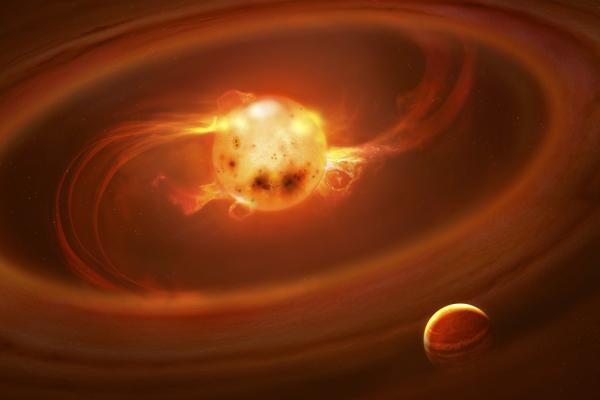
Title: Planet Formation from a Dynamical Perspective: Explaining the Orbits of Ultra-Short-Period Planets Through Disk-Planet and Star-Planet Interactions
Abstract:
Ultra-short-period planets (USPs) reside interior to the expected truncation radius for a typical T Tauri disk, requiring extra explanations for their current orbital locations beyond simple disk migration. In particular, once a planet migrates close to the disk truncation radius, Type I torques will go to zero or switch direction depending on the stellar and disk conditions, and the result is that the planet is expected to stop migration and become trapped. In this presentation, we explain how for suitable disk parameters, magnetically-driven sub-Keplerian gas flow in the inner disk can naturally counteract these effects and subsequently produce USPs at their observed orbital radii. The sub-Keplerian gas flow provides a headwind to small planets, providing a strong torque which can overcome the effects of outwards Type I migration in the inner disk. However, this geometry may prove dangerous to planets, which will be subjected to disk temperatures that may exceed the rock sublimation temperature. We also discuss how post-disk dispersal, stellar evolution can lead to a particularly intriguing geometry of system containing ultra-short period planets in high multiplicity systems where the ultra-short period planet and the outer planets exist in two different dynamical states. This has manifested in the observational data as a small number of stars hosting systems of tightly packed coplanar inner planets as well as an ultra-short period planet, where the orbit of the latter is misaligned relative to the mutual plane of the former.
